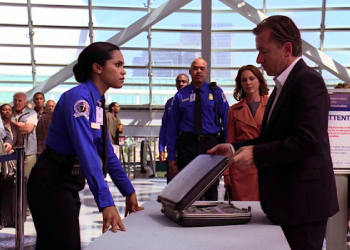Season 2 Episode 18: Headlock
 Concealment and Falsification
Concealment and Falsification
When Foster reveals she has accidentally found his passport and there is a different name on it, Burns tells Foster he is DEA uncover agent. While admitting that he has withheld information from her, he proclaims that he never told her anything that was untrue. Burns is describing the two main techniques for perpetrating a lie: concealment (withholding information) and falsification (saying something that is untrue). Although some people regard concealment as not really lying that is not the way I regard it. Unless there is prior agreement that certain matters will be kept private, concealment misleads the target, without the targets permission or foreknowledge. Surely in an intimate relationship, such as Foster has with Burns, there is an expectation that important information wont be withheld.
Many people regard concealment as more innocent than falsification. And in some situations there is nearly explicit agreement that concealment will occur. In diplomacy, for example, diplomats expect that they and their counterparts will conceal a great deal of information. Saying something false is not expected and violates the unwritten rules, forever destroying a diplomat’s credibility. It doesn’t matter that the diplomat thought he was telling the truth – Collin Powell, according to his later accounts, believed he was being truthful when he claimed in his UN speech that there was convincing evidence of weapons of mass destruction in Iraq. Having been fed false information, he was telling the truth, as he knew it. Once a diplomat has been used in this way, others no longer trust what he or she says.
I believe it is important to establish in advance explicitly what are the rules of disclosure that will be followed. My employees know that if I am considering terminating their employment they will receive at least a months advance notice. My wife and I agreed prior to marriage that a casual kiss need not be disclosed, but an intimate kiss – one that lingered, involved the tongue, caressing other body parts, etc. – had to be disclosed. My children knew that if they got into trouble in school – held after class, sent to the principal, etc. – they had to report it to us. My wife and I didn’t need to ask them each night at the dinner table ‘did you get into trouble at school today?’ They were obligated to volunteer it if that happened.
 Previous Episode
Previous Episode Next Episode
Next Episode


